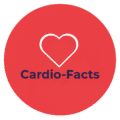Cardiovascular Symptoms
Recognizing the signs of heart disease early can save lives. This section explains the most common cardiovascular symptoms — what they might mean, and when to seek medical attention.
🚨 Key Cardiovascular Symptoms
🔹 Chest Pain or Discomfort
A classic symptom of heart disease, often described as pressure, tightness, or burning.
Possible causes:
- Coronary artery disease (angina or heart attack)
- Pericarditis
- Aortic dissection (life-threatening)
Seek emergency care if pain is severe, lasts more than a few minutes, or radiates to the arm, neck, or jaw.
🔹 Shortness of Breath (Dyspnea)
Can occur at rest or during exertion. May worsen when lying down.
Possible causes:
- Heart failure
- Pulmonary hypertension
- Valvular heart disease
- Arrhythmias
🔹 Palpitations
A sensation of rapid, fluttering, or irregular heartbeat.
Possible causes:
- Atrial fibrillation
- Supraventricular or ventricular tachycardia
- Anxiety, hyperthyroidism, stimulant use
Consider seeing a cardiologist if palpitations are recurrent or associated with fainting.
🔹 Fatigue and Weakness
Unusual tiredness can be a subtle but early sign of heart problems, especially in women.
Possible causes:
- Heart failure
- Bradycardia or arrhythmias
- Low cardiac output from valve disease or cardiomyopathy
🔹 Swelling (Edema)
Commonly in the legs, ankles, or abdomen. May be associated with weight gain.
Possible causes:
- Congestive heart failure
- Venous insufficiency
- Pulmonary hypertension
🔹 Dizziness or Fainting (Syncope)
Brief loss of consciousness or feeling light-headed.
Possible causes:
- Arrhythmias
- Orthostatic hypotension
- Aortic stenosis
- Neurocardiogenic syncope
🩺 When to Seek Help
- Sudden chest pain, especially with shortness of breath or nausea
- Fainting, especially during exertion
- Irregular heartbeat or fast heart rate with symptoms
- Leg swelling with breathlessness
- Persistent fatigue or unexplained weakness
Early evaluation with an ECG, echocardiogram, or Holter monitor may be needed.
📘 Disclaimer: This information is for educational purposes only and not a substitute for professional medical advice. Always consult a healthcare provider if you experience concerning symptoms.
